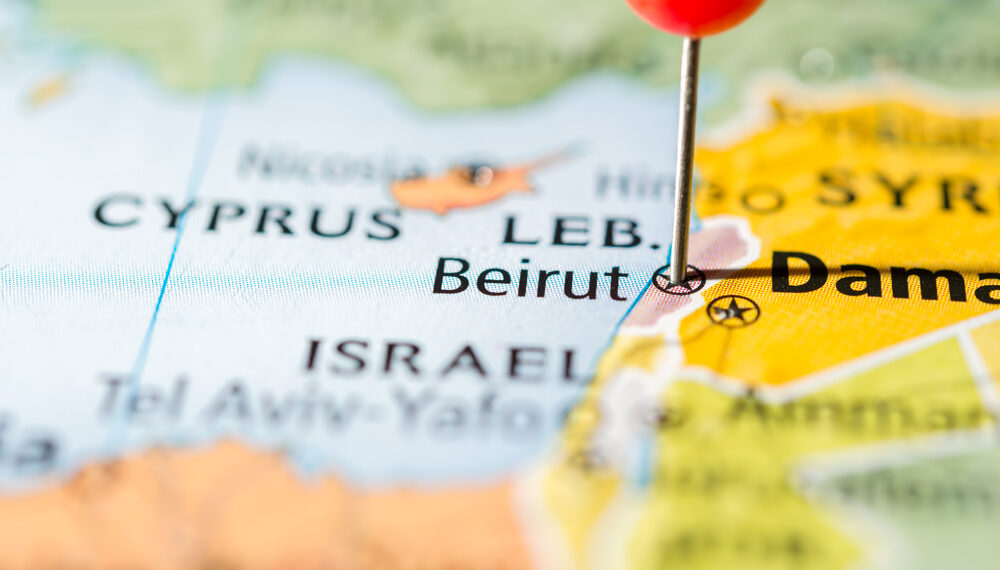
First published on October 18, 2023. Updated May 31, 2024.
Summary
- In Lebanon, crypto usage, trading and mining have offered a monetary lifeline in the face of economic and financial crises.
- Crypto usage continues in the face of tight banking controls and hyperinflation.
- With no end in sight to the country’s economic problems, increasing numbers of Lebanese can be expected to turn to crypto to help meet their daily monetary needs.
- For other examples of Crypto in Action, check out our collection page.
The Economic Crisis in Lebanon is a Catalyst for Crypto Adoption
The World Bank described Lebanon’s economic situation as one of the worst witnessed globally since the 1850s and prompted a declassification of the country to lower-middle income. The UN estimates that 78% of the population now live below the poverty line.
Inflation was, until March 2024, in the triple digits (rising 290% during 2021, and 171.2% in 2022), unemployment rose swiftly to almost 30% in 2022, and services collapsed. Monetarily, all financial avenues have progressively been either blocked or made prohibitively expensive.
Approximately one-half of the value of international wire transfers is lost and the fiat currency has been heavily devalued; losing more than 98% of its value since 2019.
Banks went on strike in early March 2023, temporarily leaving customers with no means to transact. Crime started to rise, particularly bank heists, although often with the perpetrator wanting only their own money not that of others.
In June 2023, the country narrowly avoided being placed on a ‘grey list’ of countries under special scrutiny because of its unsatisfactory practices to prevent money laundering. The fear is that an increasingly cash-based economy has the potential to hide illicit flows of money.
The problems have continued, with the conflict in Gaza adding new strains to the Lebanese economy. Violence and attacks have affected southern Lebanon, causing damage to buildings and infrastructure. Key sectors, including agriculture, aviation, hospitality, trade and tourism have all been affected.
During 2024, the ‘dollarisation’ of the economy has become more pronounced. Increasingly, shops, restaurants and service providers are asking customers to pay in dollars. Locals complain that this has made goods and services a lot more expensive, but it has had the desired effect of helping to stabilize the fiat and with it slow inflation.
How Lebanese Turned to Crypto
Since 2013, the Central Bank has prohibited the use of local payment cards to purchase cryptocurrencies, but crypto usage in Lebanon has become increasingly appealing in a situation where the value of the fiat is heavily eroded, the economic situation is so uncertain and distrust defines the banking sector. Aside from distrust there is the plain need to hold, store, and transact value in the context of such intense inflation.
Legislation aside, it is relatively straightforward to buy and sell cryptocurrency; to deal in USD Tether, for example, requires a mobile app and the contact details of someone who can facilitate the exchange. In the capital, Beirut, it is possible to trade hard currency for cryptocurrency with over-the-counter traders. Reports suggest there are even two bitcoin ATMs, which convert cash into bitcoin, but not vice versa.
The figures underline the scale of the growing trend. The financial crisis began in 2019. By January 2020, there was an increase of 1,781% in the number of registered portfolios in Lebanon, the world’s highest.
The situation shows no sign of abating. As Lebanon’s economic woes have continued, citizens’ interest in crypto has grown. A report issued in July 2023 revealed that in terms of Internet search terms, Lebanon tops the polls for the most interest shown in the crypto sector.
Crypto used to buy groceries and access to a global jobs market
In the face of rampant inflation, it has not been uncommon to swap crypto for US dollars to buy groceries and other staples. Some people are are relying on crypto either to supplement their income or as their sole source of income, with mining crypto becoming increasingly popular.
With job opportunities disappearing locally, increasing numbers of Lebanese are seeking freelancing work in the global market, for which they are typically paid in crypto.
Renewable energy powers mining
Although the hardware required for mining can be expensive, there are growing bitcoin mining centers in Lebanon. A report released in August suggested that Lebanon was the world’s cheapest place to mine one bitcoin – 783 times cheaper than the most expensive location, Italy.
Small-scale mining centers have developed in the Chouf Mountains (about 30 miles south of Beirut). Here miners are taking advantage of a green, reasonable and reliable source of hydroelectric power, which powers the region’s towns. The mines offer locals a means of regular employment and are contributing to the area’s longer-term development.
At least one entrepreneur in the region is also looking at harnessing the heat generated from the mining operations to be used as a heat source for the local community.
Outlook for Crypto in Lebanon
As the situation stands, the IMF is developing a $3 billion loan facility, with which will come with economic and political reform demands, including the restructuring of the banking sector. Estimates place the financial shortfall at $72 billion underlining the enormity of the task. As of May 2024, negotiations between the fund and the government continue, but with little progress.
For many years Lebanon was regarded as having a stable and investment-friendly banking system. Whatever means the authorities and international community use to stabilize, reform and redevelop the country’s financial system, one thing is certain, a return to fiscal health will take years.
In the interim, the use of crypto in Lebanon is expected to develop, offering a financial lifeline for the country’s beleaguered population, much as it has in countries like Turkey and Venezuela.

























